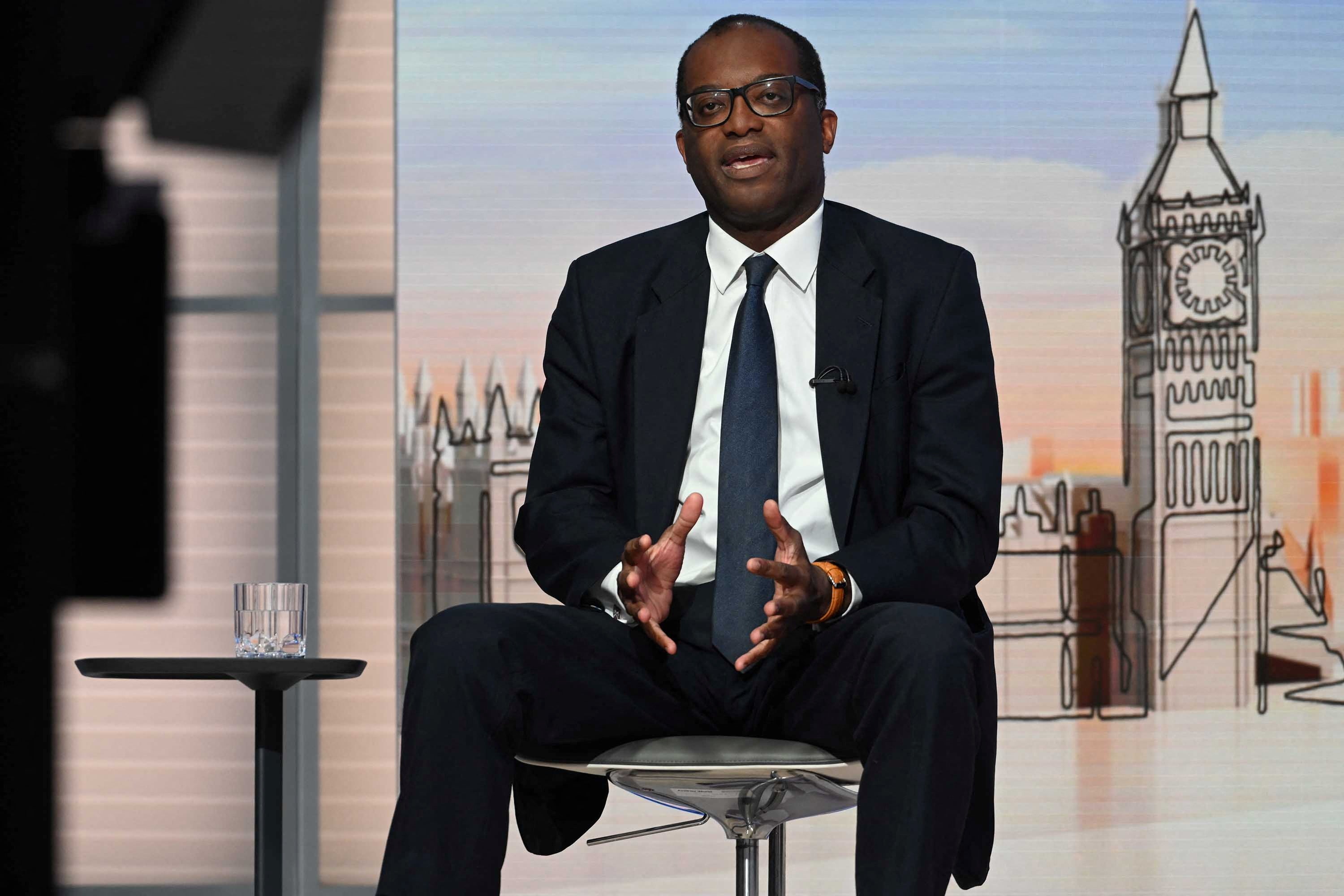Bank of England chief economist says pound slump will ‘require significant response’
Huw Pill said there had been ‘significant market consequences’ following the chancellor’s announcement of tax-cuts
Your support helps us to tell the story
From reproductive rights to climate change to Big Tech, The Independent is on the ground when the story is developing. Whether it's investigating the financials of Elon Musk's pro-Trump PAC or producing our latest documentary, 'The A Word', which shines a light on the American women fighting for reproductive rights, we know how important it is to parse out the facts from the messaging.
At such a critical moment in US history, we need reporters on the ground. Your donation allows us to keep sending journalists to speak to both sides of the story.
The Independent is trusted by Americans across the entire political spectrum. And unlike many other quality news outlets, we choose not to lock Americans out of our reporting and analysis with paywalls. We believe quality journalism should be available to everyone, paid for by those who can afford it.
Your support makes all the difference.The Bank of England’s chief economist has said that a slump in the value of the pound will require a “significant monetary policy response”.
Speaking at a conference on Tuesday, Huw Pill said there had been “significant market consequences” following the chancellor’s announcement of tax cuts on Friday.
In a statement to Barclays-CEPR International Monetary Policy Forum, Mr Pill tried to reassure those present that the Bank of England had a watchful eye on current events.
“In the Monetary Policy Committee, we are certainly not indifferent to the repricing of financial assets that we have seen,” he said.
“I want to reassure you that the MPC has a very good understanding of its mandate to maintain price stability and its remit to bring inflation to its 2 per cent target,” he continued.
However, Mr Pill acknowledged that “these are quite challenging times for pursuing that target”.
He also tried to put the recent slump in the pound in the context of other global developments.
“The relevance of market developments have to be seen in the context of other important macro-economic influences, including the fiscal news that was announced last week, as well as developments in energy markets and labour markets,” he said.
He was tight-lipped however on any future moves the Bank of England’s Monetary Policy Committee (MPC) might make to reign in inflation.

Instead, he insisted that “we are relying on our communication of our policy intentions and framework”.
In a rare statement on Monday, governor Andrew Bailey said that the MPC “will not hesitate to change interest rates by as much as needed to return inflation to the 2 per cent sustainably”.
Mr Pill also referred to the Treasury’s update issued on Monday, in which the chancellor pledged to set out his medium-term fiscal plan on 23 November. Mr Pill called the statement “helpful” and praised the government for submitting itself to the external scrutiny of the Office for Budget Responsibility in this next phase, something they did not do for last Friday’s announcement.
Concluding his statement, he added: “As recent events have demonstrated, we can’t really know what the future holds, not for the next few weeks, not for the next few days, not even for the next few hours.”
He then caveated that he was speaking as an individual, and not on behalf of the Monetary Policy Committee, when he said “recent events” had “had significant market consequences, as well as significant implications for the macro outlook”.
“It is hard not to draw the conclusion that all this will require a significant monetary policy response,” he said.
Earlier in the conference, Luis de Guindos, vice president of the European Central Bank, warned that he did not have good news about the state of the European economy.
He predicted “higher inflation, lower growth and a big amount of uncertainty.” He said that the first half of 2022 had been good in terms of growth but in “the second half of the year, the economy is losing momentum”.
Mr de Guindos added that he could not discount the possibility of negative growth in 2023.
He continued: “Over the next months, we will continue raising rates, but the decisions we are going to take are going to be determined by data. The number of hikes and the size of the hikes will be informed by the data.”
He added that the ECB wanted to avoid “getting into a spiral of wages and prices”.






Join our commenting forum
Join thought-provoking conversations, follow other Independent readers and see their replies
Comments